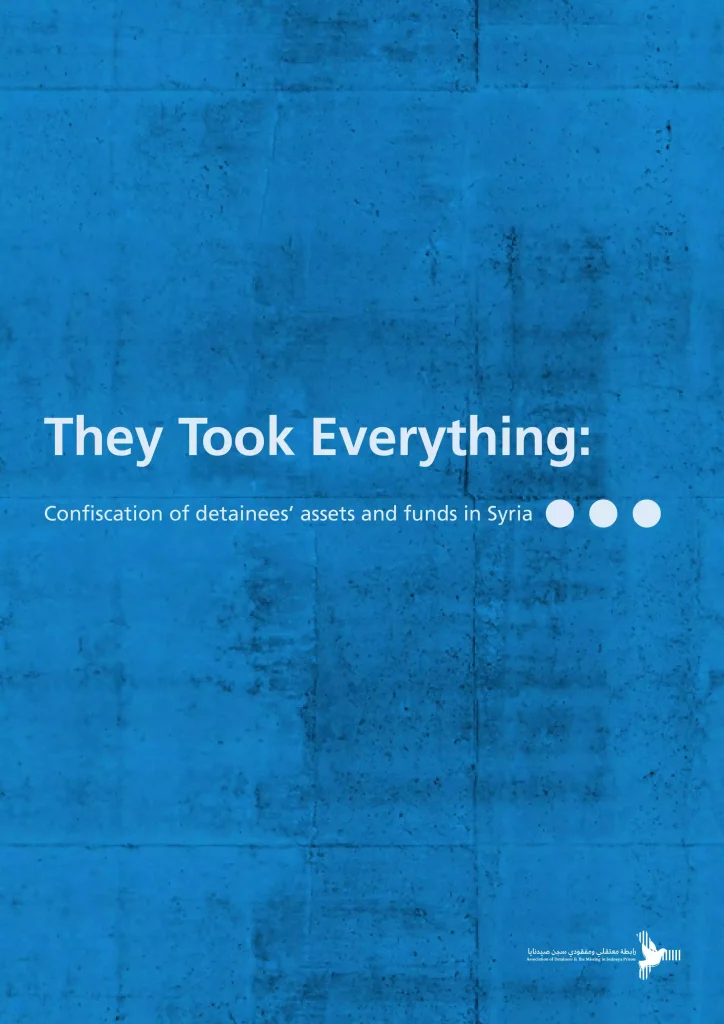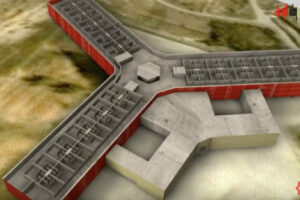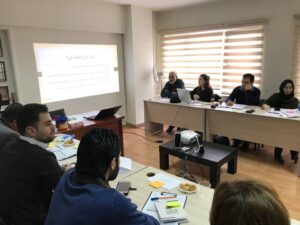A new report by the Association of Detainees and the Missing at Sednaya Prison (ADMSP) estimates that the Syrian regime has seized a staggering $1.5 billion worth of assets from detainees since the revolution began in 2011, exploiting the suffering of people it forcibly disappears and detains for financial gain.
Assets seized by Bashar al Assad’s regime include cash, property, businesses, items such as electronic devices, jewellery, agricultural equipment and even livestock and poultry.
The $1.5 billion estimate was calculated based on information gathered from 105 former detainees who were stripped of their land, property and other material assets through official court orders and other official decisions. It is based on a conservative estimate of at least 250,000 detainees arrested since 2011. The true figure is likely to be higher since the findings of the report indicate the majority of assets are seized unofficially
In recent years Syria has faced a crippling economic crisis which has seen the Syrian currency collapse and a sharp rise in poverty compounded by economic sanctions. As a result the cash-strapped regime has been forced to search for other sources of revenue including by extorting money from family members of detainees, seizing businesses and taking control of their assets The rise in the confiscation of detainees’ assets is the latest in a series of desperate measures the regime has resorted to in order to stay afloat and combat the impact of sanctions.
Former detainees interviewed for the report said they had lost their homes and businesses and were left destitute upon their release – on top of struggling to deal with the physical and psychological scars of the horrifying abuse, torture and sexual violence they endured in detention.
Osama al-Sheikh Hamed, a former officer in the Syrian military who was detained in June 2011 for refusing to order his troops to open fire on civilians in the village of Jisr al Shugour, and was tortured for three years, is among those who discovered he had lost everything upon his release:
“Everything I had worked my whole life for – my house, furniture, our cars and shops, our land, everything was gone. There are no words for that.”
Muhammad Kafr-Joumi, from Idlib, a former detainee, who spent eight years unlawfully detained and tortured leaving him physically disabled, said the regime seized his family’s factory and home. He described the regime’s ruthless tactics as part of a systematic policy:
“This is the policy of the regime: they will destroy everything you have if you dare to oppose it. They will take everything from you. They will destroy your lives and your families.”
Diab Serrih, a former detainee and co-founder of ADMSP, said:
“This report reveals the shocking scale of financial exploitation and abuse of detainees who in many cases have already been forced to endure years of harrowing torture and inhumane prison conditions. It also exposes the depths of the Assad regime’s corruption and the ruthless tactics it is deploying to survive the dire economic crisis, destroying the lives of those it detains long after they have left prison. The report also offers a warning for all families of detainees forcibly disappeared or missing persons to take steps to try to protect their property and inheritance.
“These findings must spur the international community to push for the release of all those who have been unlawfully detained and an end to torture, and other cruel and inhuman treatment in detention as well as halting the regime’s callous policy of confiscating detainee assets. It serves as an important reminder of the ongoing brutality and horror that continues on a mass scale within Syria’s detention system.
“The vast majority of detainees were imprisoned unlawfully in connection with peaceful activism or opposition of the regime, illustrating that the unlawful practice of seizing detainees’ assets is part of the Assad regime’s deliberate strategy to destroy all perceived opponents and crush dissent.”
The report also provides anoverview of the treatment of Syrian detainees from the moment of their arrest until release based on a survey of a total of 801 detainees highlighting reasons for arrest, the widespread and abusive use of torture and other ill-treatment in detention, as well as shedding light on charges, sentences, court proceedings and means by which detainees were eventually released.






